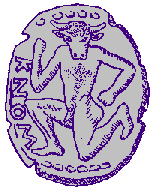WHO
OR WHAT KILLED
POETRY IN ENGLISH ?
|
Poetry
in English is dead.
Well, maybe not dead, but cataleptic.
Who
or what killed poetry in English ?
William Wall has suggested that the creation of Arts Councils was largely responsible. The UK Arts Councils were founded just after World War II, and the Irish Arts Council a few years later. "...at no time in the recent past have writers been so integrated into the fabric of power and at the same time strikingly powerless as they are now. Writers, integrated into the fabric of power, I hear you ask, how can that be? The [Irish] Arts Council, established in 1951 with Sean O Faolàin as its chairman, was originally conceived as a conduit for state funding for the arts, including grants and bursaries to writers and artists; Aosdàna, a national body for writers and artists was established in 1981, its only useful function to disburse a cnuas or bursary to deserving members; two further organisations manage grants for translators of Irish literature and grants for Irish artists and writers to travel abroad. Most — probably all — of the festivals that take place around the country on a regular basis are part-funded by these government bodies; most travel by Irish writers benefits in some way from these organisations; many writers who would otherwise be in straitened circumstances draw an honourable pension from Aosdàna. It is, in fact, difficult if not impossible to be a writer in Ireland and not to become the beneficiary of government largesse in some form. And in addition to government funding, most arts organisations draw the balance of their sponsorship from local, national or international business, and, of course, government anyway sees its interests as virtually identical to those of commerce. I do not wish to suggest that a withdrawal of government funding is a good idea — quite the contrary, it is the business of government, among other things, to support the artistic life of the community — rather I am suggesting that it has never been easier for writers to abandon their traditional oppositional stance and cosy up to the political establishment. Of course the political establishment for the most part don't give a damn about them so long as they're not rocking the boat — the day when an Irishman might agonise about whether a play of his ‘sent out certain men the English shot' is long gone." But poetry in the USA, Canada and other anglophone countries has also died. It cannot be due merely to Arts Councils. My criticism of modern pseudo-poetry (whether written by a Great Writer such as Margaret Atwood or Samuel Beckett, or a Nobel Laureate appointed by a trend-following and politically-motivated committee) is that it is anecdotal. It seeks to entertain, to calm, to confirm our status as Civilised And Cultured People. It is excruciatingly well-crafted, tedious and mostly banal. It lacks outrage, it lacks ecstasy, it lacks edge. Edge is something which, ironically, only doggerel (written as such) now retains. 'Literary' poetry is a corpse given creepy afterlife by performance zombis. William Wall describes most modern poetry in English as 'potted narrative', whose language "is flat, undifferentiated, yellow-pack. The even, solitary voice is interchangeable across numerous poets. The syntax is straightforward. The subject matter is generic. Allusion is mainly confined to titles. Borrowing is rare. There is no ego [by which he means personality, an all-too-common confusion]." He exemplifies the drearily-ubiquitous 'confessional' type of poem thus: I remember how you used to do
something Because I have never had a television and never will have one. I have noticed that people more and more are entranced by soporific anecdote, whether 600-page biographies of historical figures (which the English can't get enough of) or TV "soaps". Everyone wants to be part of a narrative ('Reality TV') and to see the world - simplistically - as mere narrative. The USA does not have Arts Councils, so might television also have played a part, through its 'anecdotalization' of everything ? Other countries now have "soaps", however, and many of them are not producing the stifle that passes for utterance in anglophone countries. Television
can only harm poetry, because television is performance, transient
spectacle. It has great difficulty with subtlety. Unfortunately
almost everyone looks at television- and becomes innerly blind.
Moreover, The twentieth century has been defined as 'The Century of the Self'. The idea of 'identity' was invented, and, along with rampant individualism, came the pseudo-educational idea of poetry as 'self-expression' from which the critical and philosophical elements were expelled. But if Arts Councils and post-war Education Acts, aided and abetted by the dead hand of Faber & Faber, killed poetry first in Britain, then in Ireland, what was the reason in the USA and Canada ? Wallace Stevens, after all, did not die until 1955. Might the trendy 'liberal bourgeois' newspapers who trumpeted Consumerism (and have nothing to say now that they are swamped by it) also have been a contributing factor ? Might the dramatic rise and increased scope of the novel have killed the appetite for the ruminative and allusive in increasingly pseudo-literate societies ? Might universal secondary education - which ditched Latin and Greek in the ever-increasing tendency towards 'vocational education' (which is no education at all) -have helped ? The march of the ego ? The invention of the plastic bag ? The rise of mindless popular music with its fatuous lyrics ? (Some of those lyrics - by such luminaries as Bob Dylan and Leonard Cohen - have actually been hailed as poetry by callow college-professors - thus showing how low we have sunk.) The narrow 'ideological hegemony' of the West, whose vaunted democracy is only the fence around Guantanamo, or the lies that led to the invasion of Iraq ? Or simply the turbo-capitalism which hates critical thought and denies reflective inspiration ? Or, indeed the cynical rise of moneyspinners such as "Creative Writing" Courses and Workshops, whose existence depends on the centrality of mere narrative in poetry, merely decorated by language, especially onomatopœia and folksy words such as 'clabber'. Thus message escapes medium, leaving a well-crafted philosophical void, which critics and English faculties can fill like twittering souls in Hades. It is horribly ironic that there is an academic industry around Emily Dickinson, headed by people who seem not to have the faintest idea what it was that impelled her to write. The same is true in England of the admirers of William Blake, an embarrassingly awkward poet of anger and outrage who, incomprehensibly, has been latched on to. Anger and outrage are, of course, anathema to the poetry magazines and publishers today. The hundreds of poets-in-residence across the Anglosphere have been chosen precisely because of their blandness - their political, philosophical and poetic nullity. Vacuous
modern relativism - which seemed so 'advanced' - must
have played its part in the poetry-morgue. Thus anything is poetry
if Someone Important on television or in a university says it
is. Faber & Faber under Belfastman Monteith hailed Heaney
and Muldoon (leading lights of the Ulster Poetry Mafia), Larkin
and Hughes - all safe wordsmiths, and no threat to any person
or institution - so they became benchmarks, cynosures. The narrative
of Sylvia Plath (again ironically) encouraged the vacuous idea
of poetry-as-therapy, when it patently had no therapeutic value
for her. Indeed, the great poet MUST end
in despair, as Yeats and Plath did. As Rilke and many others also
did. Reading the lyrics of his famous and high-pitched admirer, the vacuous Nobel Laureate Robert Zimmerman, I wonder if the great raconteur and playwright Dylan Thomas may also have laid a cold hand on poetry. If callow lines such as "Do not go gentle into that good night / Rage, rage against the dying of the light" almost become a mantra, what can we say about contemporary thought ? How can we rate as 'great' a poet who is haplessly, drunkenly unaware of Diogenes, Schopenhauer, Kropotkin, Dostoyevsky, Rilke or the Buddha ? Might Auden and MacNeice also have helped to dumb poetry down towards its present demotic level ? Or, paradoxically, their contemporary, the ridiculously over-rated Lorca ? For those hispanophone poets most admired by anglophones are the most shallow: Neruda is another such - while the magnificent, continually-questioning Lusitanian, 'Pessoa' in his various avatars, remains largely unknown. We live in a time of froth. My tastes are shockingly sedimentary. Who today in the English-speaking world would dare to follow Donne, Hopkins, FitzGerald writing as Omar Khayyam, Matthew Arnold - or even Edward Dowson ? Poetry is pretty well dead in France, too - a fine tradition (Villon, Ronsard, Baudelaire, Lamartine, de Musset, etc.) finally and unsurprisingly blotted out by self-serving academics and the Literary Bureaucracy. France- unlike Germany - is a country where philosophy has rarely thrived, producing historic ghosts such as Descartes, Pascal and La Rochefoucauld. Probably the most original French thinker (apart from 'Property-is-Theft' Proudhon) is the great Jean Genet - who, alas, was a terrible poet. I am told that César Vallejo ushered out great poetry in Spanish; maybe Pessoa did the same for Portuguese (if not Brazilian) verse. Of course, the novel (if we discount Don Quixote) was largely an English invention, quickly taken up by the French, and the novel is, essentially anecdote, story, narrative. Much modern 'poetry' in English is simply compressed prose: the novel reducing itself well beyond the short story (which preceded it) to a mere observation or account. England also had Shakespeare, the most narrative (and in my view unwatchable) of playwrights. Compared with the Greek giants of poetic theatre, or even with Racine, Shakespeare is extremely anecdotal and 'busy'. Thus it was in England that newspapers first bloomed. Hence, I believe, there is a strong tendency within the Anglosphere against the poetic, against mystery and the mysteries of destiny. Prose itself (alongwith the whole culture) has moved in the direction of the 'businesslike'. And so poetry has withered away leaving only the starkness of chopped-up prose. (Or, in my own case, repetitive polemic.) There are, indeed, so many wonderful novels, packed with insight, that the short and pithy philosophical reflection might seem to have no more function in our time than the epic poem. But the novel 'doesn't do' aphoristic or ambiguous much more than newspapers do. Ambiguity and 'packed', multi-layer verse seem to have flown away with the knowledge of Greek. And this will affect poetry everywhere, just like the terrible Industrial Revolution, engendered in England by greed and fire. To judge from the poems of Tomas Tranströmer, at least as translated by one of the worst translators known to English, Robert Bly, Sweden is another poetic and philosophical black hole. Tranströmer has been translated into 46 languages, and claimed to be 'spiritual' by hundreds of thousands of the spiritless. I would venture the opinion that Catullus is more 'spiritual' than he. But poetry is, for the moment, alive in other parts of Europe: Serbia, Albania, Romania, Spain, Portugal, Macedonia, Germany, Ukraine, Russia and Finland (to name those I know about) all have vital contemporary verse and continuing traditions of philosophical and/or dissident writing. Why is this ? Answers on more than a postcard, please. Given the unassuagable hunger for narrative, the future of poetry may lie either in some new kind of poetic novel, or in the kind of prose-poem that Margaret Atwood produced in Good Bones, where she wrote: 'What we want of course is the same old story....We want it all to go on and go on again, the same thing each year, monotonous and amazing...'
|
Comments can be e-mailed to
|
|
|
this site only |
![]()


